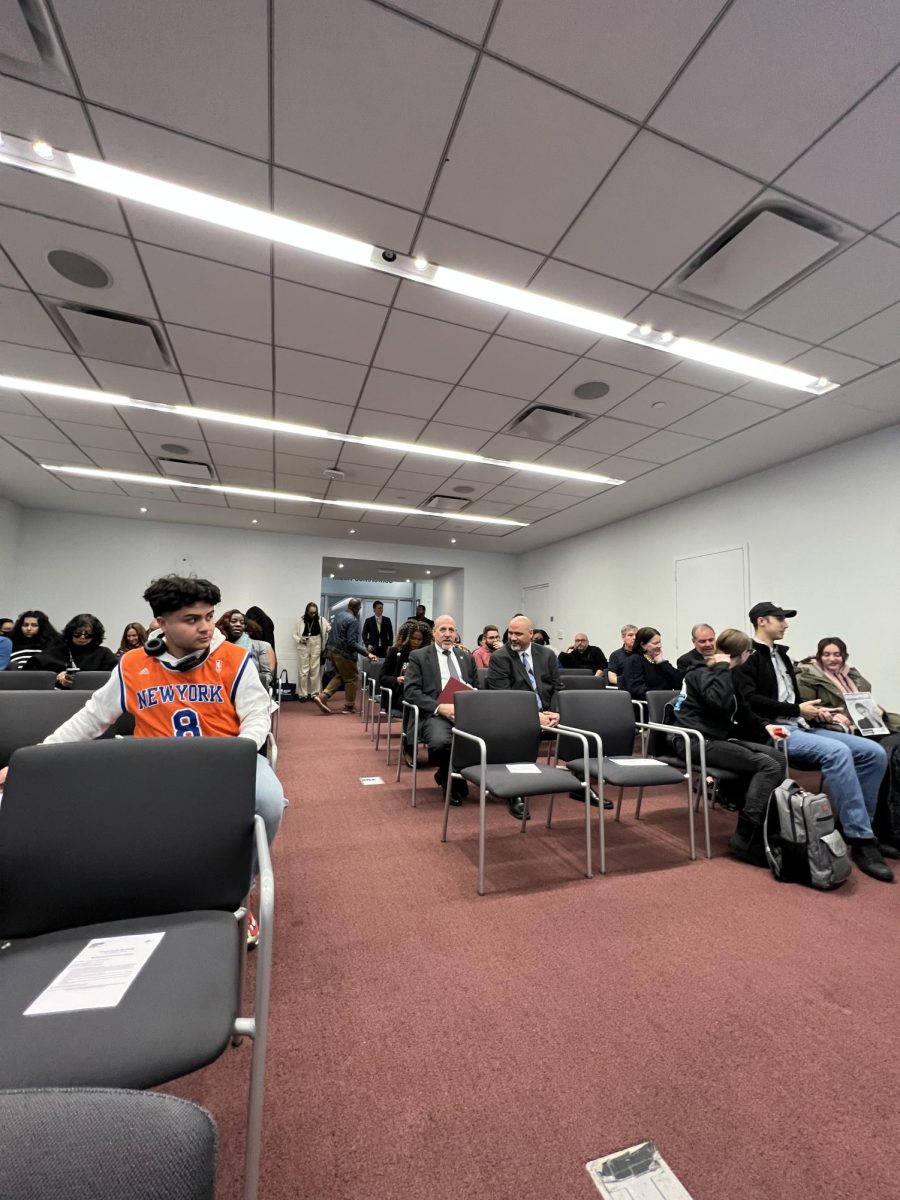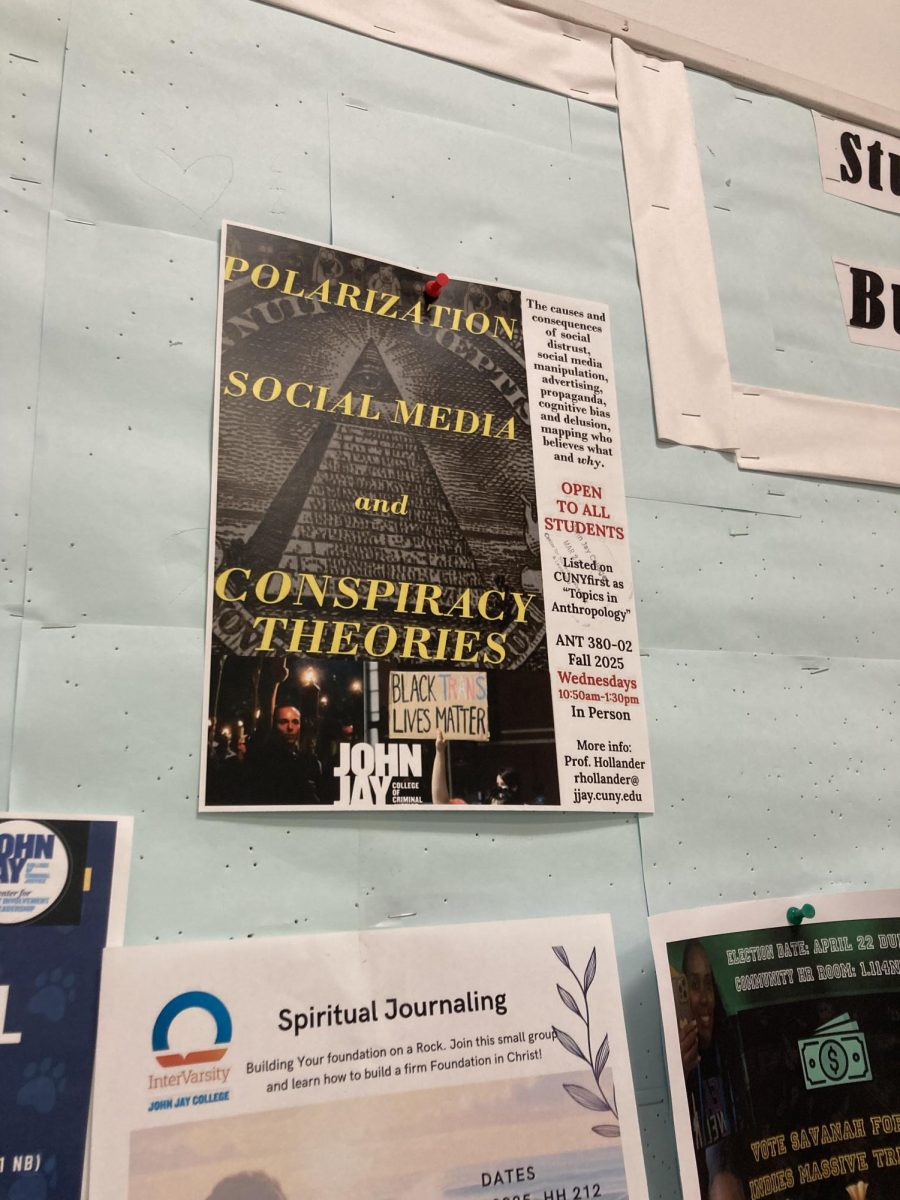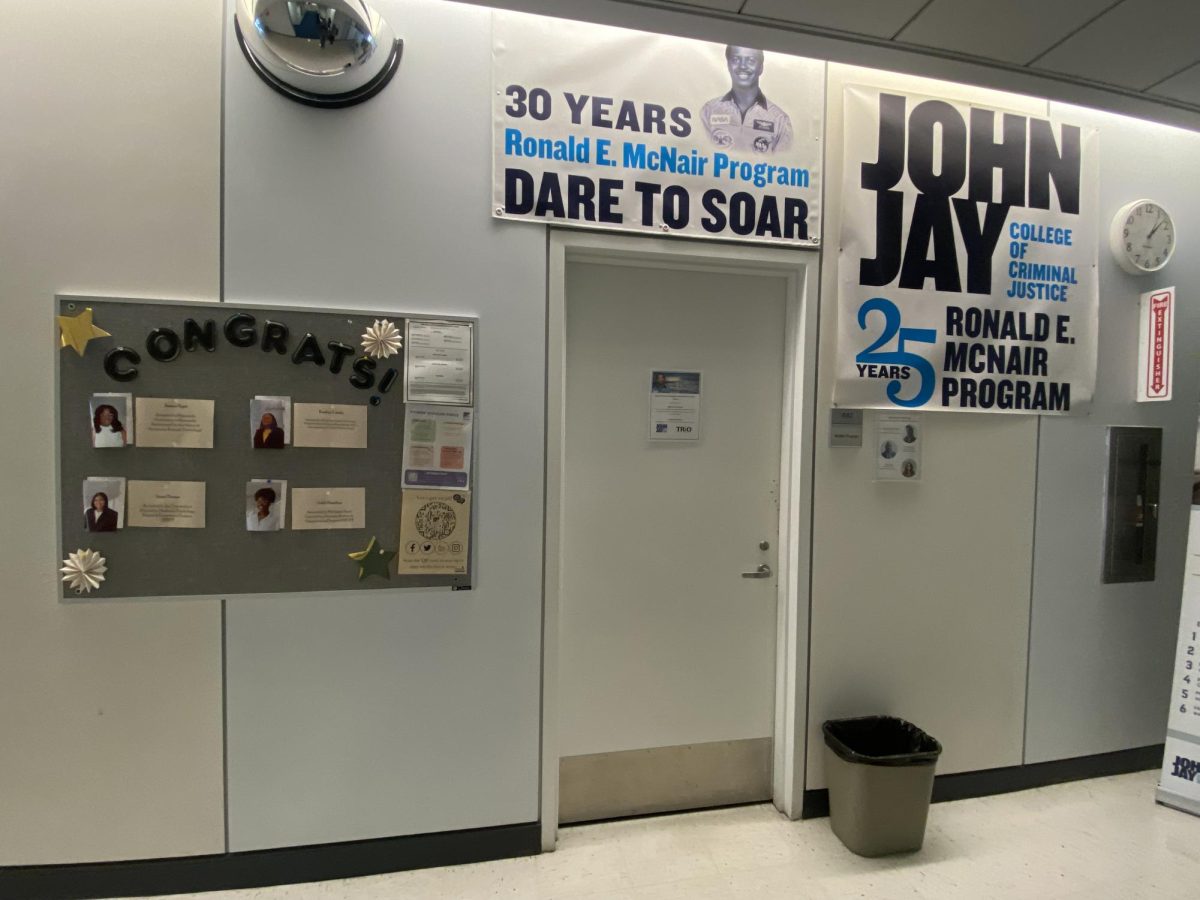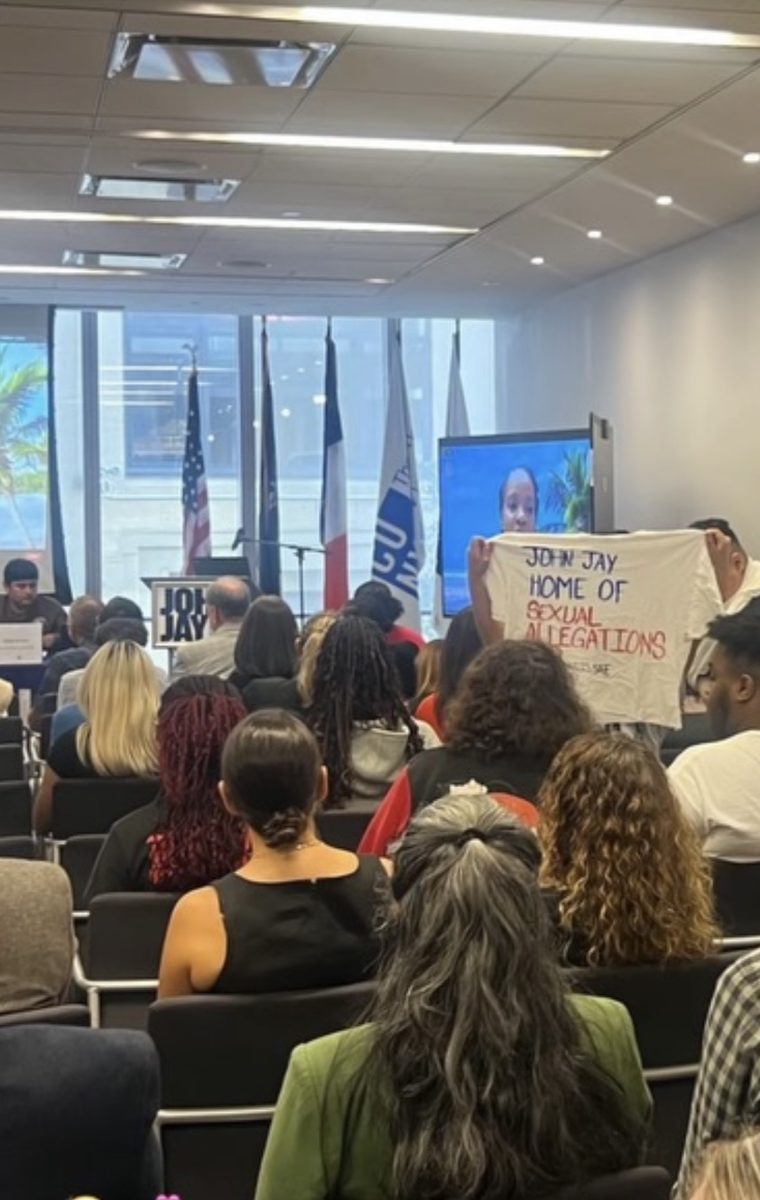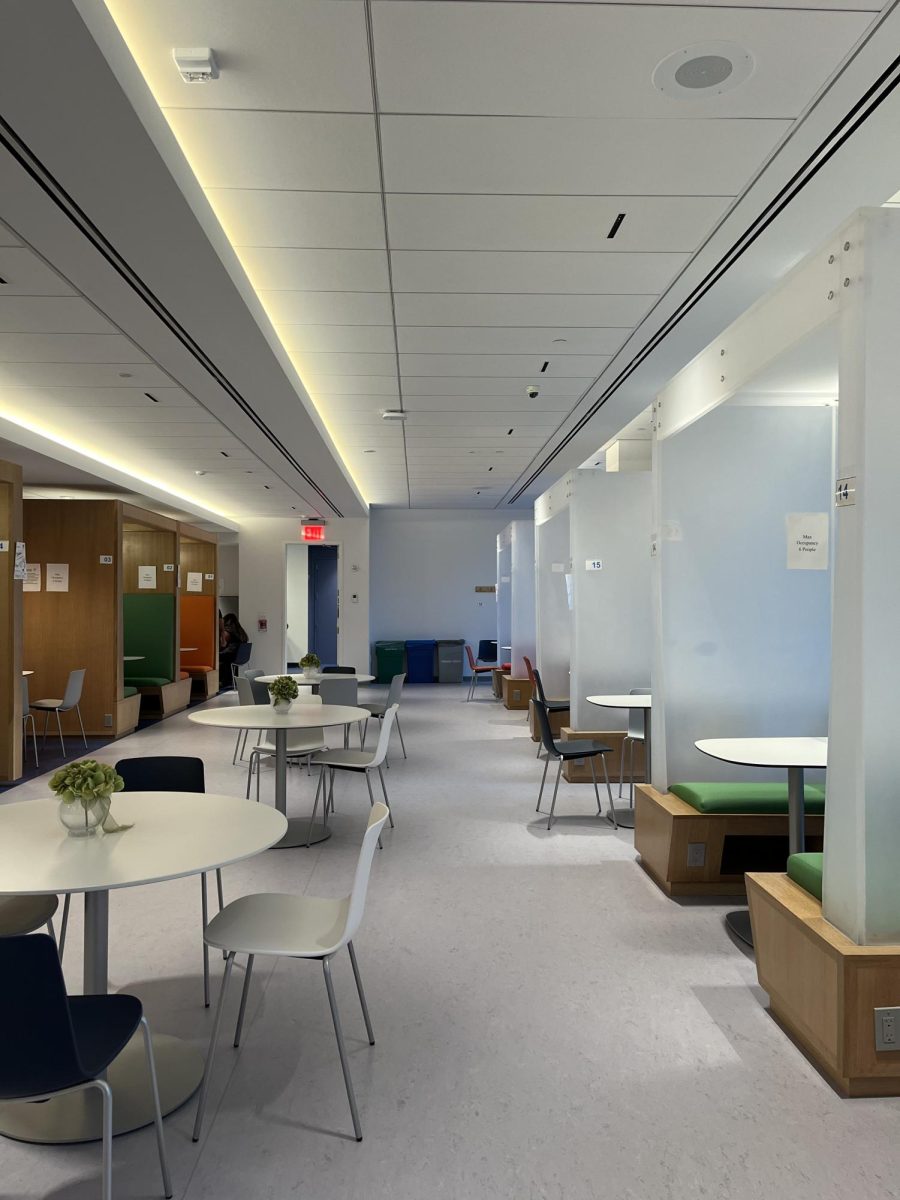On August 15th, 2024 John Jay President Karol V. Mason issued a statement notifying the John Jay community that anthropology Professor Ric Curtis, who reportedly violated CUNY’s Drug and Alcohol Policy along with CUNY’s Sexual Misconduct Conduct Policy, will be returning to John Jay’s campus next year.
These allegations against Curtis first surfaced in 2018 and an investigation was opened.
According to her statement, President Mason indicated that the final report of the investigation “meticulously documented unacceptable, unprofessional conduct by the professors that violated CUNY policies, including the Policy on Sexual Misconduct and Policy on Drugs and Alcohol.”
More specifically, various sources indicate that many of the complaints made about Curtis’s conduct specifically mentioned inappropriate language and harassment.
The Sentinel has requested an interview from President Mason’s office via email, but did not receive a direct answer.
During the September 16th Town Hall, when the Sentinel asked about the measures John Jay Administrators will be taking to safely facilitate Curtis’s return to teaching, Mason said, “I’m going to make sure to educate him as much as I can about what the expectations are about his behavior when he returns.”
Mason continued, “As far as the requirements when he comes back to campus, there are limits to what I can do there too because they say specifically in the rules that I am not allowed to do anything that could be considered retribution and so we are working through things. This is a first for me.”
When asked about the context surrounding this event, Mason said, “I’ve been trying since 2019 to terminate Professor Curtis. Unfortunately, the arbitrator did not agree with my assessment and this is binding arbitration; what that means is that when we enter into this process it’s determined by contract, all of our faculty and staff are under this contract. I am bound by the decision of the arbitrator,” she said.
President Mason continued, “There is no ability to appeal it, so it is binding on me. What the arbitrator said is that while they found in favor of many of the conclusions John Jay reached about his behavior, they thought that the sanction of termination was not acceptable and instead imposed a sanction of a one year suspension without pay.”
New John Jay Provost Allison Pease also made remarks about the incident and campus safety as a whole during Monday’s Town Hall.
“I share your frustration, but I am also frustrated that we may be painting with a really broad brush,” she said.
“There 1,200 professors at John Jay College and what we know is that there were four in the incident in 2018, three of whom were terminated, and one of whom has been in arbitration for five years; we tried to terminate him and that was unsuccessful,” said Pease.
Pease continued, “You are safe with your professors and I don’t want there to be some mistake that the incredibly hard working, professional faculty at John Jay College is predatory.”
Although the statements made by John Jay’s administration representatives at Town Hall were accurate in terms of CUNY’s policies, clear, and thorough, many John Jay students do not feel that this decision is just.
Student activist Savannah Munoz, who majors in international criminal justice, explained her frustration with this decision.
“I think it’s really disrespectful to not only the victims, but the people who have not come out yet. As a college administration, it should be your priority to respect our safety and our bodies,” said Munoz.
Mariath Zacarias Soto, a John Jay student activist majoring in criminal justice, claimed that she does not feel safe on campus ever since it was announced that Prof. Curtis will be returning to teaching.
“I do not feel safe with him, or just on campus in general,” she said.
“Not only that he abused his dynamic, [but also] if you look into him, he studied prevention drug abuse drug legalization and different drugs, which is cool because that’s what he supposed to do as a professor—write articles—but I feel like he might have used those findings [and] studies on students,” said Soto.
Soto also voiced other concerns about what she perceives as a gap in communication between John Jay’s administration and it’s students.
“[The] admin[istration] could’ve done way better at communicating this because why did The New York Post tell us first?”
When specifically asked about President Mason’s emailed statements on the matter, which were sent to the John Jay community on September 14th, Soto continued to express her frustration with the timing of communication efforts on the administration’s behalf.
“[The] emails [were] not [sent in a] timely manner. She [President Mason] thought it was appropriate to send them at the time she did and I don’t think it was,” said Soto.
Soto continued, “I feel like transfer students should know this. I feel like everyone in the whole world should know that he’s coming back to the school, not just the community members of the school.”
Women’s Center Counselor and Gender-Based Violence Prevention and Response Advocate Jessica Greenfield explained her message to students who feel unsafe in light of these events.
“I think that students don’t realize how powerful their voices are,” she said. “Every time I have seen really important change at John Jay it has been primarily because of student activism,” said Greenfield.
Greenfield continued, “A more general sense of safety on the campus is something we all have to work on and we have to be responsible for.”
“When the events that happened with the professors in 2018 happened, we had brought in a outside organization to do a campus climate survey,” said Greenfield.
The campus climate survey data was consistent with the seven main themes students were experiencing at the time of the incident: shared values and belonging; respectful learning and working environment; expanding and coordinating resources for reporting and response; communication and transparency; leadership development, strategic capacity, and support; training and other resources for holistic prevention; and timeline, reporting, and accountability.
These themes of the data are still relevant to what students are experiencing while they matriculate on campus six years after the incident.
Greenfield, who helped facilitate the 2018 campus climate survey, elaborated on her perspective of hearing the safety concerns of all students.
“When I hear students saying that they feel unsafe on campus it is really heartbreaking and it really hits home. It makes me think about how much work we still have to do,” said Greenfield.
Greenfield continued, “That’s one of the reasons why Town Hall, as painful as it is to hear how upset students are, is also so powerful because that’s what pushes change.”
Any student who feels they are in an unsafe situation on campus may contact the Title IX office for support, as well as other resources available.
Resources:
212-237-8111
Compliance & Diversity Office,
623 Harren Hall
212-237-8177
Room L2.61 NB
212-237-8524




